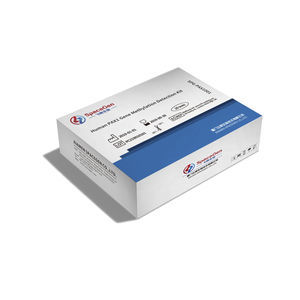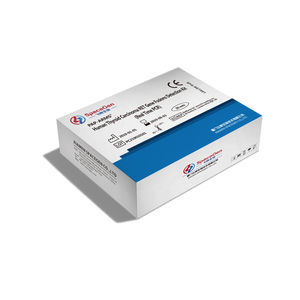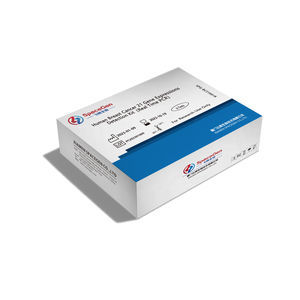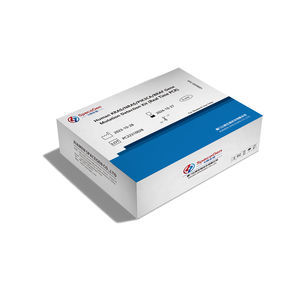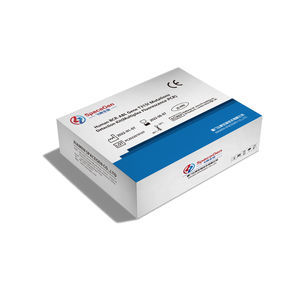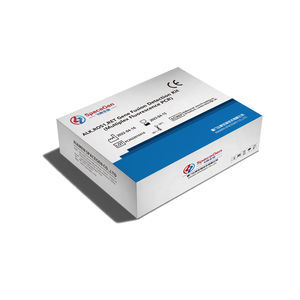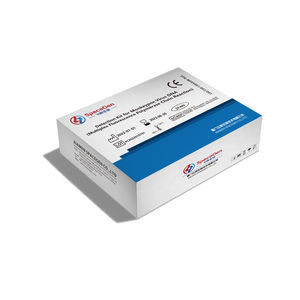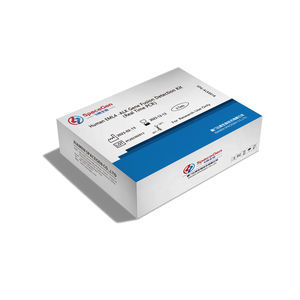

- Company
- Products
- Catalogs
- News & Trends
- Exhibitions
Colorectal cancer detection kit PC202201507oncologyfor MLH1 genetissue
Add to favorites
Compare this product
Characteristics
- Applications
- colorectal cancer
- Application field
- oncology
- Tested parameter
- for MLH1 gene
- Sample type
- tissue
- Analysis mode
- for qPCR
- Result display time
90 min
Description
The protein encoded by the MLH1 gene is involved in DNA mismatch repair. The methylation of the MLH1 promoter is commonly found in sporadic microsatellite instability tumors including colorectal cancer and endometrial carcinoma, which is related to the loss of MLH1 protein expression. Methylation of the MLH1 gene promoter is rarely found in Lynch syndrome. Therefore, MLH1 gene methylation analysis can be used to distinguish sporadic and hereditary colorectal cancer and endometrial carcinoma in highly unstable microsatellite tumors. In endometrial carcinoma, MLH1 gene methylation is highly aggressive and need to be treated positively.
DETECTION SIGNIFICANCE
1. Presence of MLH1 hypermethylation is consistent with sporadic cancer.
2. In endometrial carcinoma with dMMR, MLH1 hypermethylation were a subgroup with a poorer prognosis than suspected-LS.
3. In endometrial carcinoma patients with MLH1 methylated versus Lynch-like, pembrolizumab show poorer ORR,and shorter OS and PFS.
APPLICABLE PEOPLE
Applicable people: Patients with colorectal cancer and endometrial carinoma.
FEATURES & ADVANTAGES
1. High Sensitivity: Sensitivity can detect as low as 1% gene methylation status.
2. Ease of Use: Based on technology PAP-ARMS®, one step detection in 90 mins.
3. Great versatility: Validated on the most common qPCR machines with stable results.
DETECTION PROCESS
1.Nucleic Acid Extraction
2.Modification
4.Amplification
5.Data Analysis
Catalogs
No catalogs are available for this product.
See all of SPACEGEN‘s catalogsRelated Searches
- Assay kit
- Blood assay kit
- Immunoassay assay kit
- Plasma assay kit
- Infectious disease detection kit
- Analysis software
- Molecular test kit
- Respiratory infection test kit
- Whole blood detection kit
- Optical assay kit
- Clinical assay kit
- Fluorescence assay kit
- Viewer software
- Real-time PCR test kit
- Research assay kit
- Laboratory software
- Windows software
- Laboratory detection kit
- Cell assay kit
- Oncology test kit
*Prices are pre-tax. They exclude delivery charges and customs duties and do not include additional charges for installation or activation options. Prices are indicative only and may vary by country, with changes to the cost of raw materials and exchange rates.



